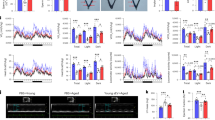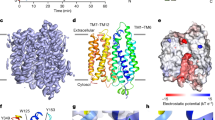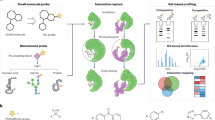Abstract
ATTENTION has been focused in recent years on the effects of fatty acids on phosphate metabolism. In 1956 it was shown1 that decanoate uncouples oxidation from phosphorylation in rat kidney and brain mitochondria. It was also shown, in the same year2, that fatty acids stimulate the latent adenosine tri-phosphatase activity of rat liver mitochondria, myristic acid being the most effective. Results of recent work3 have shown that the phosphorus-32 turnover in Ehrlich ascites cells is markedly decreased in the presence of potassium decanoate; however, that of rat liver slices is more sensitive to decanoate than is the process of oxidative phosphorylation in rat liver mitochondria4. In isolated rat kidney and brain mitochondria, 0.6 mM decanoate is needed to decrease the P: O ratio by 50 per cent1, and preliminary experiments with rat liver mitochondria have indicated that decanoate is approximately as active in this system. In work with rat liver slices, 1.33 mM decanoate inhibited phosphorus-32 turnover in adenosine triphosphate by 75 per cent, but the oxidation of decanoate-1-14C proceeded at a high and constant rate for 3 hr. at this concentration, indicating that there was still sufficient adenosine triphosphate for the initial activation step. It was therefore of interest to determine if the decrease in the rate of labelling of adenosine triphosphate with phosphorus-32 in liver slices is due to a decreased rate of synthesis of the triphosphate, or whether it is due to the fact that labelling takes place by a process which is particularly sensitive to the presence of fatty acids. The adenosine triphosphate-phosphorus-32 exchange reaction5 might constitute such a process, and the effects of fatty acids on this reaction were investigated.
This is a preview of subscription content, access via your institution
Access options
Subscribe to this journal
Receive 51 print issues and online access
$199.00 per year
only $3.90 per issue
Buy this article
- Purchase on Springer Link
- Instant access to full article PDF
Prices may be subject to local taxes which are calculated during checkout
Similar content being viewed by others
References
Scholefield, P. G., Can. J. Biochem. Physiol., 34, 1227 (1956).
Pressman, B. C., and Lardy, H. A., Biochim. Biophys. Acta, 21, 458 (1956).
Creaser, E. H., and Scholefield, P. G., Cancer Res., 20, 257 (1960).
Ahmed, K., and Scholefield, P. G., Proc. Can. Fed. Biol. Soc., 2, 3 (1959).
Boyer, P. D., Falcone, A. B., and Harrison, W. H., Nature, 174, 401 (1954).
Dawkins, M. J. R., Judah, J. D., and Rees, K. R., Biochem. J., 73, 16 (1959).
Lehninger, A. L., and Remmert, L. F., J. Biol. Chem., 234, 2459 (1959).
Author information
Authors and Affiliations
Rights and permissions
About this article
Cite this article
AHMED, K., SCHOLEFIELD, P. Effects of Fatty Acids on the 32P-Adenosine Triphosphate Exchange Reaction in Rat Liver Mitochondria. Nature 186, 1046–1047 (1960). https://doi.org/10.1038/1861046a0
Issue Date:
DOI: https://doi.org/10.1038/1861046a0
This article is cited by
-
Effect of long-chain fatty acids and acyl-CoA on mitochondrial permeability, transport, and energy-coupling processes
Journal of Bioenergetics and Biomembranes (1976)
Comments
By submitting a comment you agree to abide by our Terms and Community Guidelines. If you find something abusive or that does not comply with our terms or guidelines please flag it as inappropriate.



